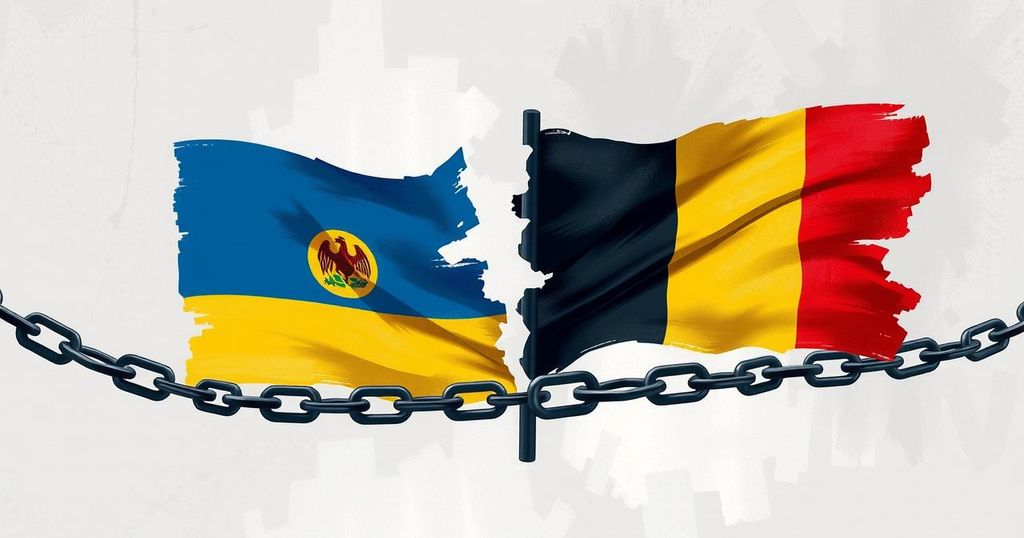Rwanda and Belgium: A Diplomatic Split Over the DRC Conflict

Rwanda has severed diplomatic ties with Belgium, accusing it of supporting actions against Rwanda in the DRC conflict. The decision is rooted in historical tensions and marks a drastic breakdown in relations between the two countries. Belgium has yet to respond officially to this diplomatic crisis.
Rwanda has officially severed diplomatic relations with Belgium, citing the latter’s perceived support for hostile actions against Rwanda amid the ongoing conflict in the Democratic Republic of Congo (DRC). This decision came through a statement released on March 17, indicating a strong condemnation of Belgium for maintaining what Rwanda describes as “neocolonial illusions.” Particularly, Rwanda criticized Belgium’s stance in light of the M23 rebel group’s recent territorial gains in eastern DRC.
This significant diplomatic rupture marks a noteworthy escalation in a historically fraught relationship, characterized by colonial legacies and tensions since independence. Belgium’s prior colonial rule has contributed to a complex dynamic between the two nations, with renewed conflicts exacerbating these issues. Rwanda’s vehement remarks suggest that reconciliation may be unattainable in the near future, especially without a change in Belgium’s approach towards the situation.
As of now, there has been no formal response from the Belgian government regarding this development, but the implications of this diplomatic rift are profound. The complexities surrounding the geopolitical landscape in the DRC must be monitored closely, as they are likely to affect regional stability. Continued updates can be found in publications such as Euro Weekly News, which will keep readers informed on this evolving situation.
In conclusion, Rwanda’s decision to cut ties with Belgium marks a significant diplomatic shift, rooted in historical grievances and current geopolitical tensions concerning the DRC conflict. This rupture underscores the complexities of post-colonial relationships and suggests that without substantial changes in diplomatic attitudes, repairs to this relationship will be challenging.
Original Source: euroweeklynews.com








